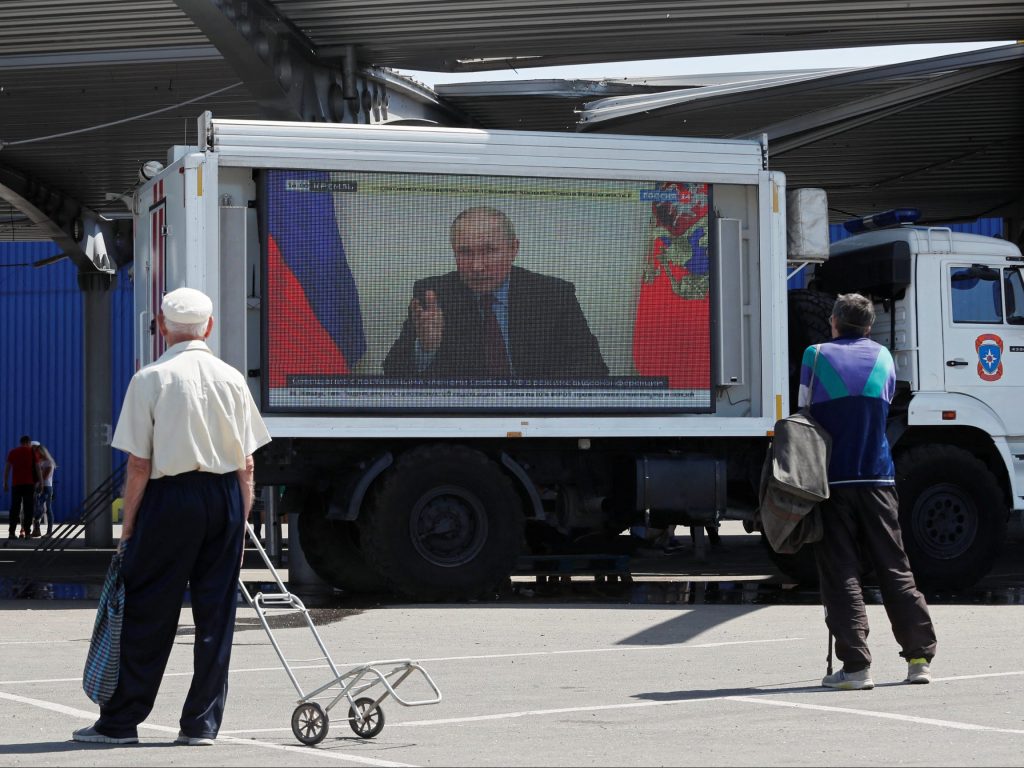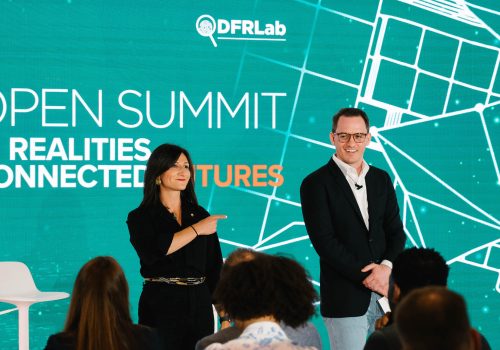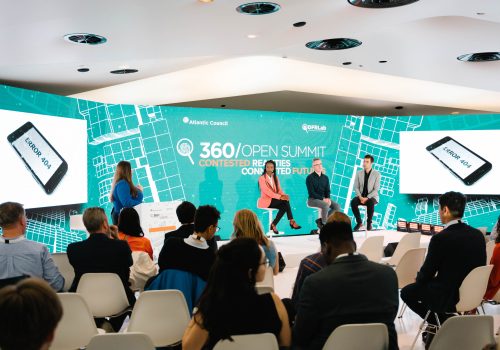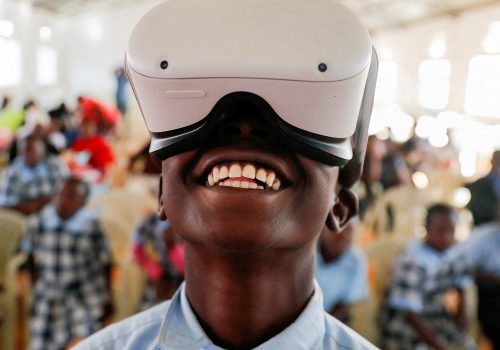At the start of the Digital Forensic Research Lab’s (DFRLab) 2022 360/Open Summit conference in Brussels on June 6 and 7, members of the DFRLab previewed an upcoming research report on Ukraine that involved reviewing more than three thousand fact checks and five hundred pro-Kremlin Telegram channels to gain a deeper understanding of how the Russian information space operates. DFRLab Research Associate Roman Osadchuk spoke about the “avalanche of disinformation” coming from Russia that seeks to dehumanize Ukrainians. Alongside Russia’s invasion of Ukraine, a torrent of false narratives were used to justify the war, including falsely equating Ukrainians with Nazis, accusing Ukraine of having “biolabs” capable of building “dirty nuclear bombs,” and blaming the United States and NATO for provoking the war.
In the panel Another open source record of war, Liubov Tsybulska, founder of the Centre for Strategic Communications and Information Security in the Ministry of Culture and Information Policy of Ukraine, called out the contradictory behavior of Western states as it pertains to words versus actions. Tsybulska said, “This war also exposes a crisis of values in the West. Some of these values are very declarative and not followed by action.”
In the weeks after Russia invaded Ukraine, social media platforms and European governments imposed restrictions on Russian state-owned media in a bid to minimize the impact of Kremlin disinformation. However, in a day two session titled How sovereign hammers are fracturing the internet, and what democracies can do about it, Usama Khilji, executive director at Bolo Bhi, noted that the unprecendented decision could have unintended consequences in the future. It will encourage other governments to censor the news websites of countries with which they share unfriendly relations, he noted, warning that this will result in state media filling the information void. These actions build walls within the internet. Khilji advocated for allowing citizens, not states, to make decisions about what information they consume.
But as DFRLab’s Lead Researcher for the Baltics Nika Aleksejeva noted in the lightning talk False start: How the Kremlin lied its way to war, the issue is inherently complex. For nearly a decade, Russia has worked to undermine digital literacy among Russian citizens by repeatedly sharing propaganda that dehumanizes Ukrainians and asserts Russia’s dominance. Allowing citizens to make decisions about what content they absorb must also coincide with promoting digital literacy.
As Aleksejeva noted, even after the arms are put down, the question remains: How do we overcome Russian propaganda that will continue to spread online?
Watch the panels
Layla Mashkoor is an associate editor at the Digital Forensic Research Lab.
Iain Robertson is a deputy managing editor at the Digital Forensic Research Lab.
Further reading
Mon, Jun 6, 2022
360/OS Contested Realities | Connected Futures day 1 round-up
360/OS By
Catch up on all the highlights from the first day of the Digital Forensic Research Lab's summit in Brussels.
Mon, Jun 6, 2022
Spyware like Pegasus is a warning: Digital authoritarianism can happen in democracies, too
New Atlanticist By
Journalists and citizens targeted by spyware warn the audience at the Digital Forensic Research Lab's 360/Open Summit about the proliferation of state-sponsored digital surveillance.
Mon, Jun 6, 2022
What happens when toxic online behavior enters the metaverse?
Transcript By
As technology and reality intersect, policymakers are going to need to prepare for a world integrated with virtual and augmented reality.
Image: Russian President Vladimir Putin is seen on a screen broadcasting Russian TV news programs at a humanitarian aid distribution point during Ukraine-Russia conflict in the southern port city of Mariupol, Ukraine on May 30, 2022. Photo by Alexander Ermochenko/Reuters.



